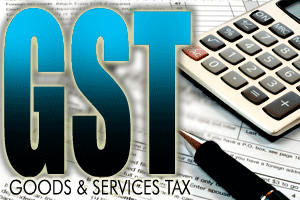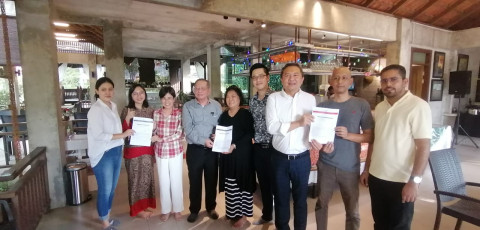By now, every Malaysian has heard of the Goods and Services Tax (GST). This 6% consumption tax which was announced in the Budget 2014 has had everyone wondering: How will I pay for the GST?
From furniture to fans, phones to pans, almost everything will be subject to the new tax, which would replace the current sales and services tax.
But with just days to go before implementation, there are still too many contradictory and confusing reports on the GST. Some say the GST would not affect the prices of goods too much, since over 900 items have been declared GST-free. Others say everything will go up sharply, since there will be little to no enforcement on traders who purposely profiteer from the GST and raise prices indiscriminately.
However, here are some myths and realities about GST which would hopefully explain some things.
MYTH 1: Some items and services will actually decrease in price, since sales tax is now 10% and the GST is only 6%
REALITY: Customs Department director of GST Datuk Subromaniam Tholasy was quoted in The Star earlier this year as saying that things such as television sets, refrigerators, air conditioners, electric irons, hair dryers, diapers and soft drinks are expected to be cheaper with the introduction of the GST, because these items had a 10% sales and services tax embedded in their prices, but with the GST replacing the SST in April, the lower 6% GST rate will make them cheaper.
However, this is a far too simplistic approach to the matter. While the prices of the items themselves are supposed to be cheaper then when it had a 10% SST, this view does not take into consideration other costs and the various players in the supply chain. Transportation of the goods, packaging cost, material cost, retailer overheads and many other costs which are involved in the end product of the television, for example, will go up in price from the GST.
In many cases, as companies prepare to equip their tax systems and implement the new tax (which may require new software and also manpower), there will be added costs to their business which they will eventually pass on to the consumer.
So while these items are unlikely to go up significantly in price, they are also equally unlikely to reduce in price.
MYTH 2: Essential services like healthcare, education and public transportation are exempted, so they will not go up in price.
REALITY: The services above are exempted, but they are not zero-rated. What this means is that while the GST cannot be passed on to the consumer, the GST has to be paid anyway. Hence, the service providers will have to absorb the GST and it will increase their cost of doing business. The increased cost will be passed on to the consumer in one way or another.
Healthcare, for example, is not zero-rated.
While doctors cannot charge 6% on their consultation services, this does not mean that other things are GST-free, such as medical equipment, medical aids, and even something simple like
bandages or wheelchairs.
In fact, private healthcare costs may increase by at least 5%, the Association of Private Hospitals of Malaysia (APHM) has said.
Some medicines are also exempted, but this does not mean prices will go down, since prior to the GST, the pharmaceutical manufacturing industry enjoyed a lot of tax breaks and is relatively tax-free. With the GST, this no longer applies and as the costs of other supply chain elements go up, so will the end product.
While most medicines are in the list of exempted essential drugs, medication for diseases like Acute Immunodeficiency Syndrome (AIDS) and cancer are not on that list.
So despite the huge billboards put up by the government reassuring the rakyat otherwise, the post-GST trip to the private clinic will still cost more, and so will your child’s private college fees.
MYTH 3: GST will have no impact on small business because they cannot charge GST.
REALITY: It is true that the GST is not applicable to traders with an annual turnover of below RM500,000.
However, president of the Small Medium Industries Association (SMI) Teh Kee Sin was quoted in newsweekly The Heat last year as saying many micro-business would feel the impact of GST nonetheless.
He explained that some micro-businesses may deal with products or services which already have the GST imposed on them. However, these micro-businesses would be unable to pass the tax on to their end-users, which means they will have to absorb the input tax themselves and incorporate that into their selling costs.
“And, if they do register, the compliance cost may be equal to the amount of input tax they have to absorb,” he had said.
Small traders will be unable to compete with bigger traders who are able to absorb the cost with minimal impact — take one’s kedai runcit versus a big chain like Mydin, for example. Mydin as a group would be able to absorb the cost of setting up the GST system quite easily, but a small trader in a rural part of town would not.
Now, if this small trader does not register for the GST, then he would be unable to pass the GST on to the consumer. He would have to absorb the GST himself, which would force him to raise prices, and lose customers.
However, the Customs Department, to its credit, has been offering financial assistance to small businesses to prepare for the GST. The question then is, is it worth it for micro-businesses to do so?
MYTH 4: There will not be rampant profiteering because there will be a Shoppers Guide
REALITY: There will be rampant profiteering, and this is most likely unavoidable. A check at press time of the Customs Department website showed that the Shoppers Guide has yet to be released, two weeks before the GST is to be implemented. Without a Shoppers Guide, many would not be able to determine how much a product should be after GST, compared to before. Unscrupulous traders will try to take advantage of this.
MYTH 5: Without GST, our nation would go bankrupt
REALITY: It is true that Malaysia is facing a budget deficit, and household debt is at worryingly high levels. With only some 1.2 million personal income tax payers and relatively low corporate taxes, income from taxation needs to be broadened to encompass more people from all levels. GST is one such broad-based tax, and over 160 countries have implemented it.
However, on that same note, the government is spending far more than it can earn — and not all its spending is accounted for.
Malaysia lost over US$48.93 billion (RM170.7 billion) in illicit outflows in 2012, making it a cumulative US$394.87 billion during the 10-year period from 2003 through 2012, according to the international anti-corruption group Global Financial Integrity’s (GFI) report last year.
It is also well-known that Prime Minister Najib Abdul Razak has a penchant for hiring foreign consultants for billions of ringgit, and for private jets which costs a few hundred million to maintain each year. Some RM200 million also go towards utilities in a building that he does not occupy.
Government spending is necessary to spur domestic economy, and austerity measures are not always the wisest decision when it comes to reducing national debt. Economists have said that austerity retards the domestic economy, and have long-term social impacts.
Nevertheless, a government that is supposed to be democratically elected to care for its people cannot force the rakyat to pay more for its mistakes. The burden of reducing national debt cannot be borne by the people alone. If the government is to implement a broad-based tax, it should at the same time make serious efforts to curb its own overspending and stop wastage. It cannot be cavalier towards the mandate it has been given and the taxpayer monies it is elected to manage.
Handouts like the Bantuan Rakyat 1Malaysia of RM950 for households earning below RM3,000 are not a ‘gift’ from the government, it is taxpayer money that is, by right, supposed to be channeled towards welfare for the needy.
MYTH 6: GST is good for the people because it is a more transparent taxation system
REALITY: A transparent taxation system benefits the government more than it benefits the people directly, since there is less room for tax evasion with the GST. Increased costs of living from the GST but without increase in wages are hardly of any benefit to the people. One does not need to be an economist to come to this conclusion.
Conclusion
The GST is not all bad, since it is widely acknowledged as an inclusive tax system which has been implemented in many developed and developing nations. It will also reduce the nation’s reliance on personal income tax. It has, after all, been proposed since the late 1990’s, even during the time of Tun Mahathir Mohamad.
That being said, there is no possible moral defence that the government can take in saying that it needs to implement the GST because it needs more revenue. The GST cannot be justified when the debt-ridden 1Malaysian Development Berhad is allegedly getting a RM900 million bailout from the government, or when a new private jet is ordered for the ‘safety and comfort of our premier’ — all while taxi fares are about to go up by a hefty 43%.
Only when the government shows that it is serious in tightening its own purse strings can it implement a tax like GST. Otherwise, the GST will be just another burden from a callous government.
– The Rocket




